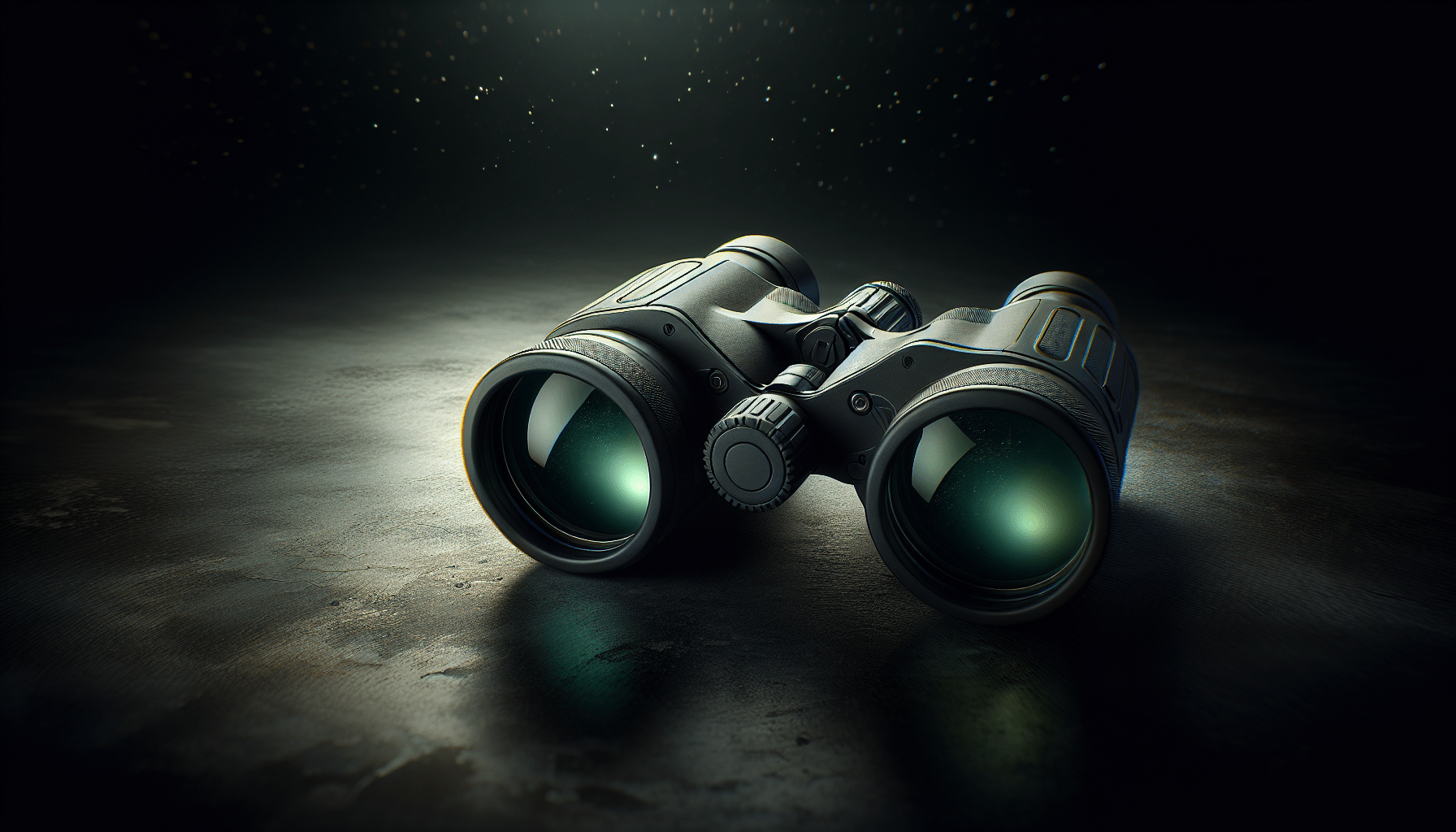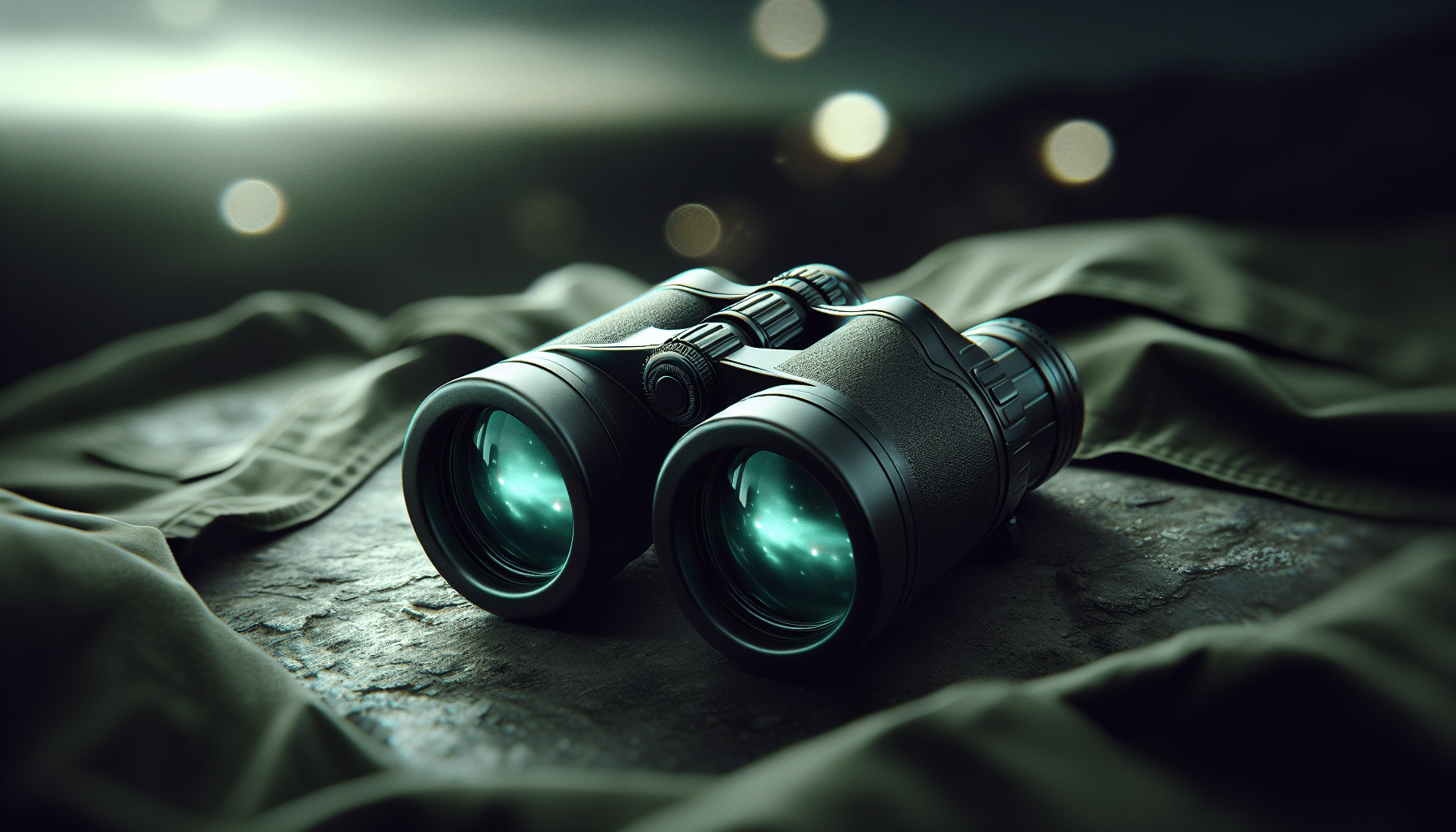Do I Have To File ISF For Night Vision Binoculars & Goggles
Have you ever wondered about the regulations surrounding importing night vision binoculars and goggles? If so, you’re not alone. The world of importing can often feel overwhelming, especially when it involves specialized equipment like night vision devices. You might be asking yourself, “Do I have to file an Importer Security Filing (ISF) for night vision binoculars and goggles?” Let’s break this down together so you can feel confident in your understanding of the ISF process and how it relates to your potential purchase.

What is an Importer Security Filing (ISF)?
When importing goods into the United States, the Importer Security Filing (ISF) is a critical requirement. Simply put, it’s a document that gives the U.S. Customs and Border Protection (CBP) essential information about the goods arriving in the country. This process helps to ensure security and streamline the import process.
Why Is an ISF Necessary?
The ISF is designed to provide customs with advanced information regarding the cargo before it arrives in the U.S. It’s important because early submission helps authorities identify high-risk shipments, allowing them to focus their resources on potentially harmful goods. This makes for a safer border and a more efficient importing process overall.
Who Needs to File an ISF?
As an importer, anyone bringing goods into the U.S. is generally required to file an ISF. This includes individuals, businesses, and manufacturers. If you’re planning to order night vision binoculars or goggles for personal use or for resale, you’ll likely fall into this category.
What Information Is Required for an ISF?
Filing an ISF requires specific information to be included. Here’s a breakdown of what you’ll need:
| Information Required | Description |
|---|---|
| Importer of Record | The individual or entity responsible for the goods |
| Consignee | The party to whom the items are being shipped |
| Seller | The party who sells the goods to the importer |
| Manufacturer | The entity that produces the items being imported |
| Country of Origin | The country where the goods were manufactured |
| HTSUS Number | The Harmonized Tariff Schedule number for classification |
| Container Stuffing Location | Where the goods are stuffed into the container |
| Consolidator | Information about the entity consolidating the shipments |
What’s the Deadline for Filing an ISF?
It’s important to remember that you’ll need to file your ISF at least 24 hours before your goods set sail for the U.S. This timeframe allows customs to analyze the information effectively and act accordingly if necessary.
Night Vision Devices and Their Classification
Now that you know what an ISF is and why it’s essential, let’s specifically address the classification of night vision binoculars and goggles.
What Are Night Vision Binoculars and Goggles?
Night vision devices are specialized optical instruments designed to amplify available light, allowing you to see in low-light conditions. They are commonly used for various activities, including hunting, surveillance, and outdoor sports.
Differences Between Binoculars and Goggles
Binoculars: These typically offer a wider field of view and are more suited for spotting objects at a distance. They are often handheld and have two eyepieces for better depth perception.
Goggles: Often worn on the head, goggles provide a more immersive experience, making them ideal for hands-free activities, like night-time hiking or patrols.
Classification of Night Vision Devices
When it comes to ISF filings, understanding the classification of your night vision gear is crucial. Night vision devices are generally classified under specific Harmonized Tariff Schedule (HTS) codes, and this classification determines whether you need an ISF or any other compliance documentation.
Typically, night vision devices fall under HTS code 9004.90.00. This includes various optical instruments that enhance visibility in low-light settings. However, the exact code may vary based on specific features or manufacturing details, so consulting with a customs expert or checking the HTS is advisable.

Do You Need to File an ISF For Your Night Vision Devices?
Once you understand what the ISF is and what night vision devices are, the next step is to clarify whether you need to file one.
When Filing Is Required
You will need to file an ISF if you are importing night vision binoculars or goggles into the United States. As mentioned earlier, this applies to personal use and commercial imports alike. Ignoring this requirement could lead to delays, fines, or even confiscation of your goods.
Are There Any Exceptions?
While most imports require an ISF, certain small-scale or specific exemptions may apply. If you’re unsure about your situation, here’s a handy table showing possible scenarios:
| Scenario | ISF Requirement |
|---|---|
| Personal use (less than $2,500) | Typically, no ISF required; still advisable to check. |
| Commercial import | Yes, ISF required. |
| Shipment from Canada or Mexico | Generally yes, still needs to be checked based on specifics. |
| Returned U.S. manufactured goods | May not need ISF but verify with customs. |
It’s always best to double-check current regulations, as they can frequently change.
The Process of Filing an ISF
Now that you know that you need to file an ISF for your night vision devices, let’s break down how to go about it.
Step-by-Step Filing Process
Gather Required Information: Before filing, collect all necessary details about your shipment from the supplier.
Complete the Filing: You can file the ISF electronically through a freighter or a customs broker. Many people find it easier to engage a customs broker for this process.
Submit the ISF: File your ISF at least 24 hours before the cargo’s departure. The system will issue a confirmation once it’s accepted.
Receive Confirmation: Ensure you keep a record of your submission confirmation, as you may need it for future inquiries.
Common Mistakes to Avoid
Avoiding pitfalls can save you from headaches. Here are some common mistakes you should steer clear of:
Filing Late: Submitting your ISF after the 24-hour deadline can lead to fines and delays.
Incomplete Information: Omitting required details can cause customs to reject your filing.
Ignoring HTS Codes: Not using the correct HTS code can result in misclassification and potential penalties.
The Role of Customs Brokers
If this all sounds a bit too complex, you might want to consider hiring a customs broker. They specialize in navigating the intricacies of importing goods and can help ensure compliance with all regulations.
Benefits of Using a Customs Broker
Expertise: They have extensive knowledge of customs regulations and can guide you through the process seamlessly.
Time-Saving: They handle all paperwork and submissions, allowing you to focus on what matters most to you.
Error Reduction: Their experience reduces the risk of mistakes, resulting in fewer complications.
How to Choose a Customs Broker
If you decide to enlist professional help, selecting the right customs broker is crucial. Consider these factors:
Experience with Your Type of Goods: Look for brokers who have experience specifically related to night vision devices or similar technology.
Reputation: Research reviews and testimonials to ensure you’re choosing a reliable broker.
Pricing: While expertise is essential, consider your budget and compare brokerage fees.
Regulations Surrounding Night Vision Devices
It’s not just the ISF filing that matters when importing night vision binoculars and goggles. There are additional regulations specific to these devices that you need to be aware of.
Export and Import Regulations
The importation of night vision devices can be subject to various federal regulations, primarily enforced by:
Bureau of Industry and Security (BIS): They regulate exports of dual-use technologies that can be used for military or civilian purposes.
U.S. Fish and Wildlife Service (USFWS): In cases where the devices may affect wildlife, such as hunting gear.
Potential Consequences of Non-Compliance
Failing to comply with applicable regulations can lead to:
Fines and Penalties: Authorities can impose fines for improper filing and non-compliance with regulations.
Denial of Shipment: Customs may deny entry to your shipment.
Legal Issues: Serious violations could lead to legal consequences depending on severity.
Frequently Asked Questions
You might still have some questions in your mind. Let’s address a few common queries regarding ISFs and night vision devices.
What happens if I don’t file an ISF?
If you fail to file an ISF, you may face delays, fines, and the possibility that your equipment is not allowed into the country. Customs can hold your cargo until your filing is completed, which may impact your usage plans.
Can I file an ISF on my own, or do I need a customs broker?
Yes, you can file on your own if you feel comfortable. However, using a customs broker can often simplify the process and ensure compliance with all regulations.
How can I be sure I’m using the correct HTS code?
The best route to find the correct HTS code is to consult the Harmonized Tariff Schedule, a resource available through the U.S. International Trade Commission (ITC) or consult with a customs broker.
Is there a difference in filing for personal and commercial use?
While both require an ISF, commercial importers may have additional compliance requirements, such as more rigorous record-keeping related to business operations.
Conclusion
Understanding the Importer Security Filing process for night vision binoculars and goggles is essential for anyone considering bringing these specialized devices into the United States. Not only does it promote a smoother import experience, but it also ensures compliance with U.S. regulations.
Remember, an ISF must generally be filed for all shipments of night vision equipment, and getting it right the first time can save you from unnecessary headaches and costs. Whether you choose to go it alone or seek the help of a customs broker, being informed and prepared puts you in control.
If you have more questions, feel free to make inquiries with customs officials or consult an expert to clarify your uncertainties. Happy importing!
Learn more about ISF and Entry Filing. Know more for Customs bond filing for 10+2. Feel free to ISF help desk. Return to U.S. import Filing.
